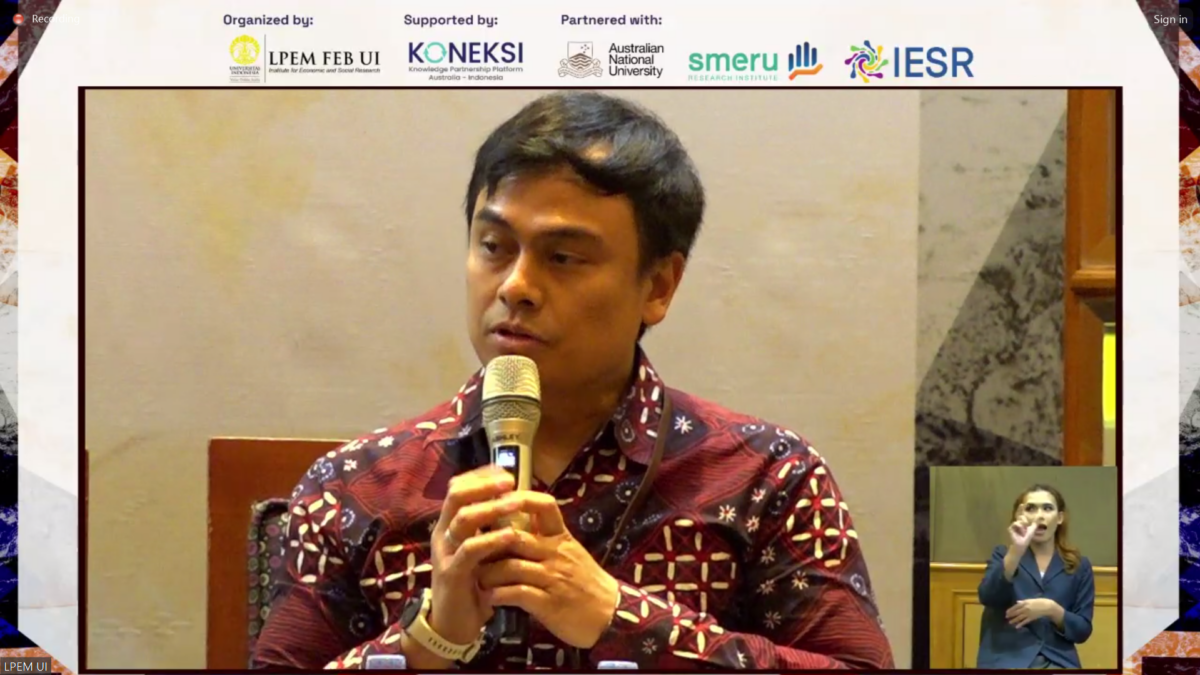Jakarta, July 18, 2024 – The energy transition is inevitable. Technological advances make clean technology that produces renewable energy continuously affordable. The challenge of large upfront costs for the energy transition requires an inclusive strategy that can embrace all groups.
Energy is a necessity for everyone and is the driving force of the economy, requiring all citizens to have easy access. The Institute for Community Economic Research (LPEM) of the Faculty of Economics, University of Indonesia in collaboration with the Australia National University (ANU), SMERU Institute, and the Institute for Essential Services Reform (IESR) conducted a study Towards Inclusive Energy Transition in Indonesia. This study looks at the potential implications of the energy transition plan represented by the net zero emission (NZE) target, for vulnerable groups, especially households with female heads of household and those with disabilities.
Alin Halimatussadiah, principal investigator of the study, explained that this study chose to focus on the aspect of inclusion and not justice because currently there is no guideline for defining what a just transition is. The study found that efforts to achieve the NZE target by 2060 or 2050 have implications for poverty levels and inequality in the short to medium term.
“The main finding of this study is the importance of government intervention to ensure that there is no socio-economic inequality in the long term during this transition process,” explained Alin.
Raditya Wiranegara, Research Manager of the Institute for Essential Services Reform (IESR), responded to the aspect of inclusion in the energy transition by highlighting the fact that currently discussions about the energy transition are still elite and occur at the national level.
“Discussions on the energy transition need to occur at the sub-national (government) level to prepare the institutional capacity of the sub-national government in facing this energy transition,” he said.
Raditya also added that the transition plan needs to map out various alternative employment options for local communities, especially those who earn informal livelihoods from the mining industry.
Policies-making on mitigating the impacts of the energy transition is urgently needed considering that the impacts of the energy transition affect all levels of society. Vulnerable groups, including but not limited to women and disabled groups, will feel the impact of the energy transition more.
“We (the disabled group-ed) will only reap the benefits of this energy transition if we can access the information, be involved in the discussion so that we can also monitor the process,” said Fatum Ade, Advocacy Coordinator of the Indonesian Healthy Soul Association.
Elly Silaban, Chair of the Indonesian Trade Union Confederation, emphasized the importance of meaningful participation from every group that will be affected by the energy transition.
“This participation must be realized by including proposals and interests of all parties in the points of the planning document that is made. Just attending the process of making a policy document cannot be said to be a participatory process,” said Elly.

